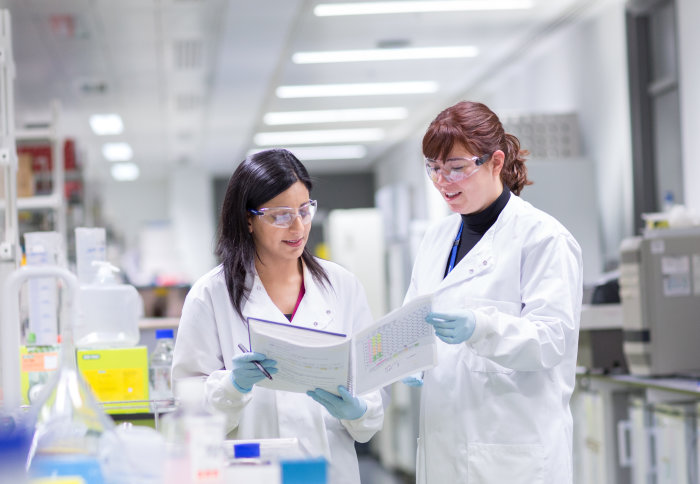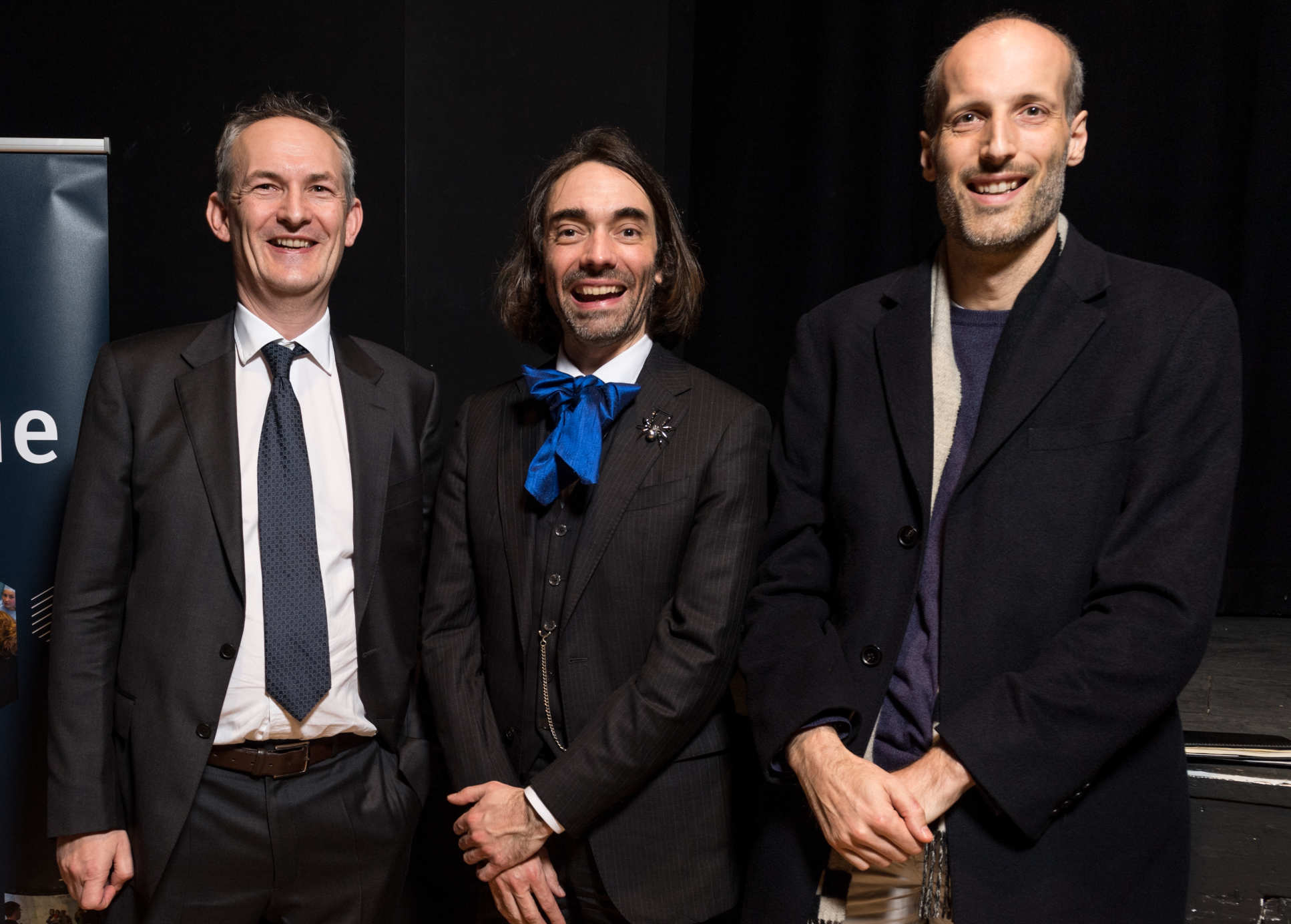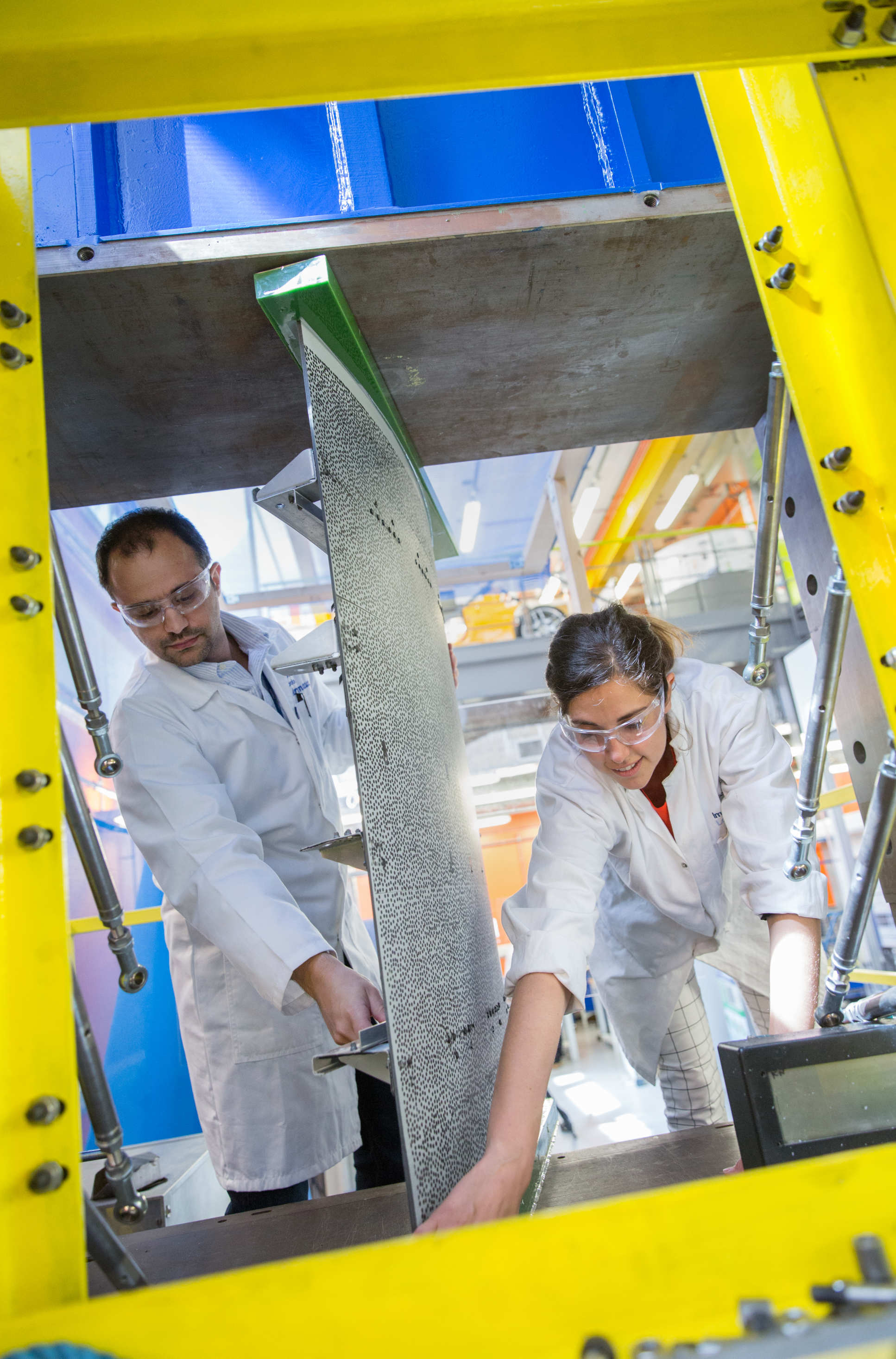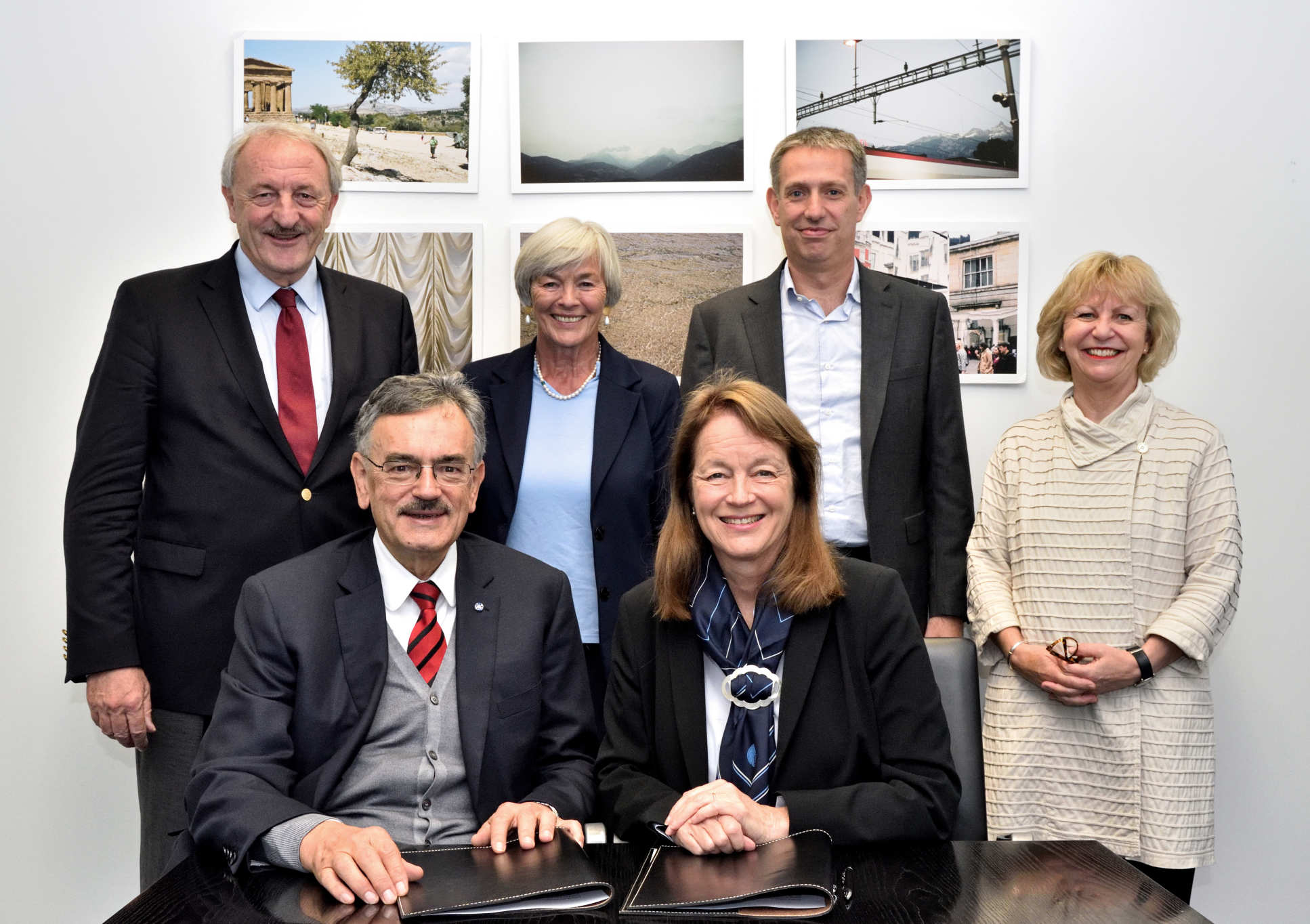Top scientists warn on Brexit, as Imperial grows European links

Some of the biggest names in science – including Imperial Fields medallist Martin Hairer – have called for a Brexit deal to protect talent mobility.
Addressed to Prime Minister Theresa May and President of EU Commission Jean-Claude-Juncker, the letter has been signed by 29 Nobel laureates and six Fields medallists.
In the letter, published by the Royal Society, the top academics call for a deal that “allows the closest possible cooperation between the UK and the EU”.
They write: “Scientific research and innovation are crucial for tackling the many shared challenges we face, including treating disease, generating clean energy, building the digital industries of the future, protecting the environment and ensuring an adequate and affordable supply of food.
“However, to meet these challenges for everyone's benefit, science needs to flourish and that requires the flow of people and ideas across borders to allow the rapid exchange of ideas, expertise and technology.”

Imperial is campaigning for the UK government to guarantee scientific mobility through automatic visas for winners of major research grants, such as Horizon 2020 or UKRI. Imperial is also calling for an expansion and streamlining of Tier 1 visas for highly skilled staff.
Survey shows Brexit science risks

Around 1,000 staff at the Francis Crick Institute, which Imperial is a founding partner of, were asked for their views on Brexit in an internal survey.
The survey found that 78% of the EU scientists said they were "less likely" to stay in the UK and 45% of lab heads said Brexit had already affected their work - either recruiting new scientists, being excluded from EU programmes or facing increased costs after the fall in the pound.
An overwhelming majority, 97% of those who responded, said a no-deal Brexit would be bad for UK science.
Flagship European Partnerships

Imperial recently launched a strategic partnership in education, research and innovation with the Technical University of Munich (TUM).
Imperial and TUM plan to forge new research links in computer science and informatics, medicine and medical sciences, bioengineering, molecular sciences, life sciences, physics, energy and new materials, and mechanical and aerospace engineering.
They will develop new student exchanges, research programmes and placements and summer schools, as well as exploring new partnerships with industry.
Vice President (International) Professor Maggie Dallman spoke to Nature about the new partnership and the importance of talent mobility.
In an article published today, Professor Dallman said: “We’re naturally interested in any mechanism that allows us to continue fruitful collaborations we have established with European partners over the decades,”
Imperial’s Professor Martin Hairer and his fellow Fields medallist Cedric Vellani were among those hailing the new Franco-British collaboration.
The pioneering venture will integrate leading researchers and students from both institutions to significantly advance collaboration in mathematics between France and Britain.
European funding awards
Imperial is Europe’s fourth biggest recipient of EU research funds. In the current research funding round, Imperial received 161m euros (£141m).
The European Research Council (ERC) has today announced a €10m grant to Imperial academics to work on giving bionic limbs natural sensations.
The ERC Synergy Grant, funded through Horizon 2020, is awarded to an international group led by Imperial’s Professor Dario Farina, which aims to replace human limbs with robotic parts that the user will feel and command as part of their body.
Article supporters
Article text (excluding photos or graphics) © Imperial College London.
Photos and graphics subject to third party copyright used with permission or © Imperial College London.
Reporter
Stephen Johns
Communications Division